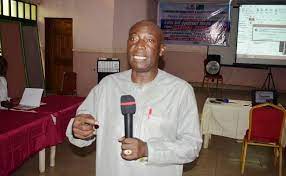A Civil Society Organisation, Conscience for Human Rights and Conflict Resolution (CHRCR) has unveiled a Network on Anti-Corruption, Transparency and Accountability (NATA), to reinforce support for Anti-Corruption initiatives and agencies towards a smooth conduct of 2023 general elections.
Mr. Idris Miliki, Executive Director, CHRCR, made this known during a one-day capacity building for CSOs on Charter of Demands in prioritising Anti-Corruption and Accountability and the presentation and unveiling of the NATA in Lokoja.
Miliki said the network would strengthen support for Anti-Corruption and social inclusion among critical groups and strengthening of policies and programmes for Anti-Corruption at the state level in the country.
He said the goals would be realised through strengthening citizens’ voices for anti-corruption and social inclusion in the states by suggesting affirmative set of actions for official implementation.
”We also aim to realise the goals through promotion of reforms and institutionalisation of anti-corruption, transparency accountability, social inclusion affirmative action and equity in Nigeria’s electoral processes in the states,” he said.
He therefore, called on stakeholders to prioritise anti-corruption and accountability issues, make demands in political platforms of candidates and their parties during electoral processes.
Also speaking, Mr Jide Ojo, Lead Presenter and Development Consultant called on all stakeholders to unite and work towards ensuring a corruption-free electoral process in forthcoming elections.
Ojo tasked the legislature on electoral reforms and called on the National and State Electoral Commissions to be committed to administrative reforms before, during and after the polls.
Mr. Hamza Aliyu, Executive Director, Initiative for Grassroot Advancement (INGRA) who led participants through the process of designing a charter of demands, called for increased citizens engagement in electoral process.
Aliyu explained that aside manifesto of political parties and their candidates, communities and constituents must identify their priority needs and enter into agreement with prospective political representatives with their charter of demands.
Reports indicated that the capacity building was organised by the CHRCR in partnership with Civil Society Legislative Advocacy Centre (CISLAC) and supported by Mac-Arthur Foundation.

